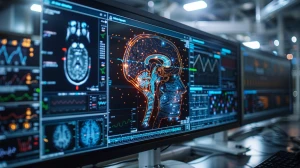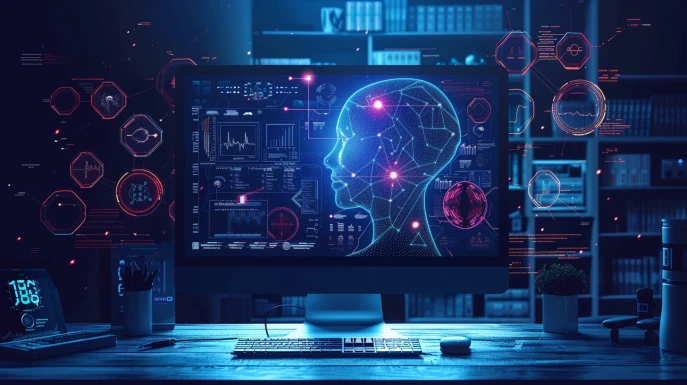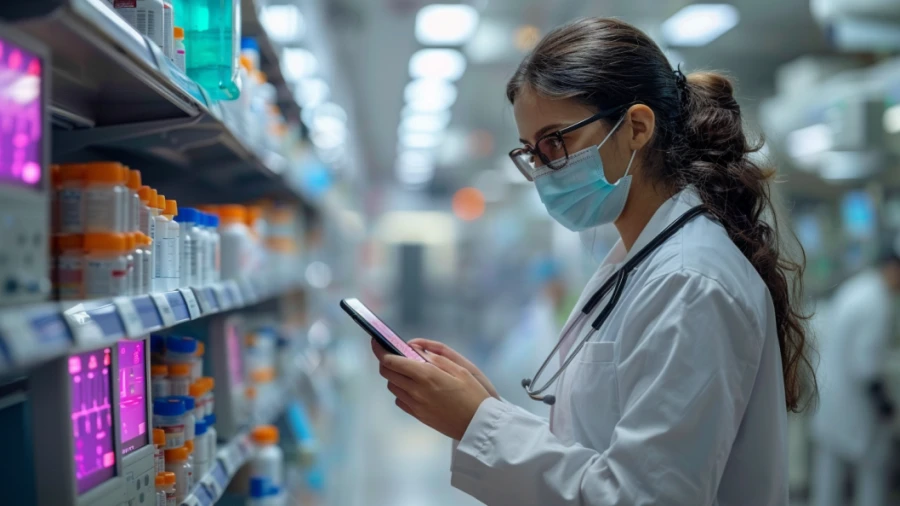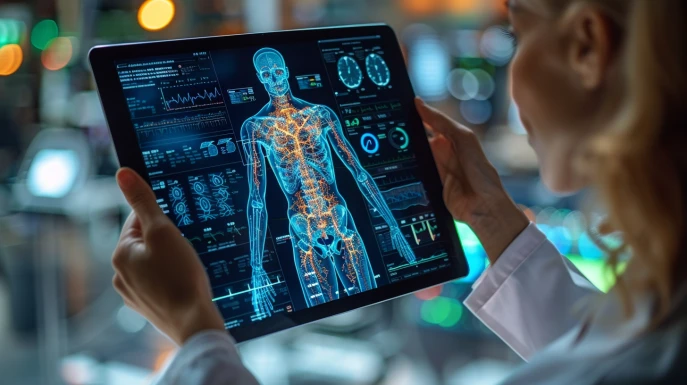
Revolutionizing Patient Care: Top Benefits of Healthcare IT Solutions You Can’t Ignore
Discover how Healthcare IT Solutions boost efficiency, improve patient outcomes, and secure data. Explore the future of healthcare technology today!
by Niranjani
Updated Feb 04, 2025
On This Page
- Enhanced Patient Data Management
- Improved Efficiency and Workflow Optimization
- Better Communication and Collaboration
- Enhanced Patient Engagement and Experience
- Increased Accuracy in Diagnosis and Treatment
- Cost Reduction and Financial Management
- Strengthened Data Security and Compliance
- Remote Monitoring and Chronic Disease Management
- Conclusion
Enhanced Patient Data Management
Healthcare IT solutions streamline the collection, storage, and retrieval of patient data, ensuring quick access to accurate medical records. Electronic Health Records (EHRs) minimize errors associated with paper records, improving overall efficiency and patient safety. With cloud-based storage, medical professionals can securely access patient information from any location, facilitating better decision-making and coordinated care.
Improved Efficiency and Workflow Optimization
By automating routine administrative tasks such as appointment scheduling, billing, and documentation, healthcare IT solutions help reduce manual workload. This automation allows healthcare professionals to focus more on patient care rather than paperwork, leading to improved operational efficiency. Additionally, real-time access to patient data streamlines workflows, reducing wait times and enhancing service delivery.
Better Communication and Collaboration
Interoperability is a key advantage of healthcare IT solutions, allowing seamless communication between different departments and healthcare facilities. Telemedicine platforms, patient portals, and secure messaging systems enable healthcare providers to collaborate effectively, ensuring continuity of care. This enhanced connectivity improves patient outcomes by fostering a more integrated approach to treatment.
Enhanced Patient Engagement and Experience
Healthcare IT empowers patients by providing them with easy access to their medical records, test results, and appointment scheduling through patient portals. Mobile health apps and telehealth services allow patients to consult healthcare providers remotely, increasing accessibility to care. This level of engagement leads to better adherence to treatment plans and overall improved patient satisfaction.
Increased Accuracy in Diagnosis and Treatment
Advanced healthcare IT solutions, such as Artificial Intelligence (AI) and Machine Learning (ML), assist in diagnosing diseases more accurately and at an earlier stage. Decision-support systems help healthcare professionals analyze vast amounts of medical data, ensuring evidence-based treatment plans. This reduces the risk of misdiagnosis and enhances personalized patient care.
Cost Reduction and Financial Management
By automating billing and claims processing, healthcare IT solutions reduce administrative costs and minimize billing errors. Predictive analytics assist in financial planning, helping healthcare institutions optimize resource allocation. Additionally, telemedicine services cut down on unnecessary hospital visits, reducing overall healthcare costs for both providers and patients.
Strengthened Data Security and Compliance
With stringent regulations like HIPAA and GDPR, healthcare IT solutions ensure patient data security through encryption, multi-factor authentication, and access control measures. These security protocols help prevent data breaches and unauthorized access, maintaining patient confidentiality. Compliance with industry regulations enhances trust and credibility in the healthcare system.
Remote Monitoring and Chronic Disease Management
Wearable health devices and remote patient monitoring systems enable continuous tracking of vital signs, benefiting individuals with chronic conditions like diabetes and hypertension. These technologies alert healthcare providers to potential health issues in real time, allowing for proactive intervention. Such innovations enhance the quality of life for patients while reducing hospital readmissions.
Conclusion
Healthcare IT solutions are revolutionizing patient care by improving efficiency, enhancing communication, and ensuring accurate diagnoses. With advancements in AI, cloud computing, and telemedicine, the future of healthcare is becoming more accessible, secure, and cost-effective. Investing in healthcare IT not only benefits healthcare providers but also empowers patients, ultimately leading to better health outcomes and a more sustainable healthcare system.























